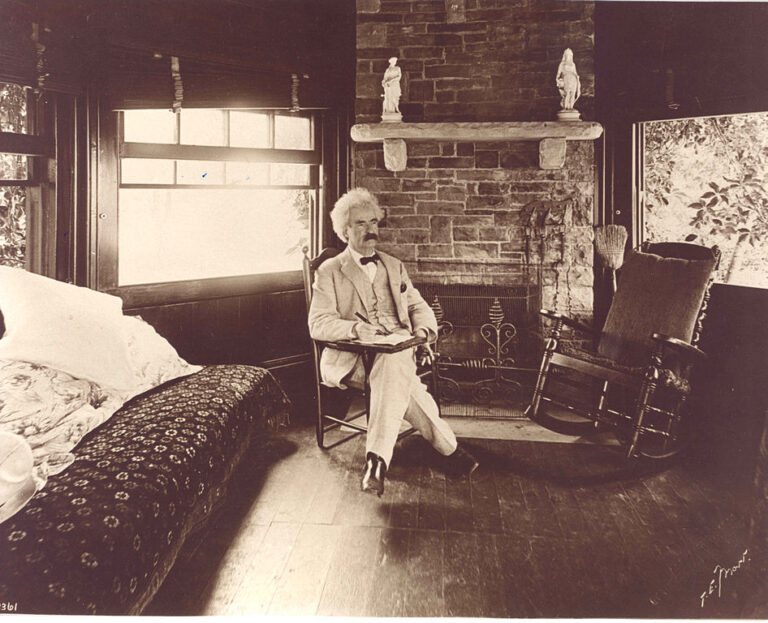Summer Reading in the Family Tree

Each summer, when the heat and humidity wilts even the most enthusiastic tourist, deep-pocketed New Yorkers flee for the Hamptons or Europe, leaving behind the restaurants I work in desolate. I also then ditch the concrete for the Massachusetts coast where my in-laws share a small beach house. For several days, or a week if my employer is kind, I trade showers for swims, grill just about everything I find, and read and watch movies until I nod off into a kind of subterranean sleep that I cannot achieve back in Manhattan.
The house in Manomet was purchased in the 1950s by my husband’s paternal grandparents. It’s a sweet, small place—bare bones and un-winterized, thus uninhabitable come October. Even so, it has been a refuge for many. There, my father-in-law studied for months in solitude for the bar exam, and his younger brother, broke and pursuing music, huddled through one brutal winter. When a family friend lost her house, Manomet became her temporary home. For me, too, it’s become a much-anticipated escape from the job and the pungent, sweaty dome that the city becomes in the summer. There are few things more pleasurable than tracking the tides, swimming in the sun-warmed waters between four and five in the evening, and inhaling the briny, cold air of the fish market less than a mile away.
Each day during my stay I spend some time examining the little library, a split time capsule of two narrow bookcases built into the walls of the living room. The one to the left of the fireplace contains books mostly from the early twentieth century, cloth- and leather-bound with yellowing yet clean pages. With some publishing years dating back to the late nineteenth century, I suspect they may have come with the house when it was turned over to my husband’s family. Here’s a selection of titles, along with opening sentences:
Father and Son (1907), Edmund Gosse
“This book is the record of a struggle between two temperaments,
two consciences and almost two epochs.”
The Doctor’s Lass (1910), Edward C. Booth
“On a morning in late summer the Doctor came down to breakfast.”
Further Chronicles of Avonlea (1912), L. M. Montgomery
“Max always blesses the animal when it is referred to; and I don’t deny that things have worked together for good after all.”
The Cross of Heart’s Desire (1916), Gertrude Pahlow
“Marcia Dale sat at her dressing-table mirror, her hands folded in her lap, silently confronting the faultless beauty of her reflection.”
Stories from Tennyson (1934), Alfred Lord Tennyson
“Long, long ago in the island of Britain there was a great king whose name was Arthur, and whose fame went out into all the lands round about; for he was wise and brave, and the most powerful lords of his day were proud to serve under his banner.”
There seems an unspoken rule with this set of shelves: that it remain unchanged. Each book has its place, in its snug row. Meanwhile, the bookcase on the right resembles the random selection of a thrift shop, or the outdoor sale shelves at The Strand in NYC. It’s a smorgasbord of literature, self-help, philosophy, and entertainment books spanning the 1960s–80s and left behind by the various people who’ve stayed at Manomet. I try to place titles with the painter aunt or violinist uncle from Kalamazoo, or my husband’s grandmother, who I never met. I’ve found surprises such as the Jane Fonda Workout Book, a copy of L. Ron Hubbard’s Dianetics (“A science of mind is a goal which has engrossed thousands of generation of Man”), and books like:
A Field Guide to the Atlantic Seashore (1985), Kenneth L. Gosner
“The beachcomber tends to be a generalist.”
Franny and Zooey (1961), J. D. Salinger
“Though brilliantly sunny, Saturday morning was overcoat weather again, not just topcoat weather, as it had been all week and as everyone had hoped it would stay for the big weekend¬—the weekend of the Yale game.”
The Edge of the Sea (1955), Rachel Carson
“The edge of the sea is a strange and beautiful place.”
Portnoy’s Complaint (1969), Phillip Roth
“She was so deeply imbedded in my consciousness that for the first year of school I seem to have believed that each of my teachers was my mother in disguise.”
Art and Soul: Notes on Creating (1986), Audrey Flack
“Art is a calling.”
In the spirit of sharing, I’ve also left behind some books on these shelves, though my contributions (The Hunger Games, Suzanne Collins; Bossypants, Tina Fey; Gone Girl, Gillian Flynn; Broken Harbor, Tana French) could have been more generous. But that’s part of the charm, I think, of the books on the right bookcase—all of them misfits, a body of found objects whose subjects were once interesting enough to have caught someone’s attention to buy and read but not keep. They stay in Manomet when their owners go. More than the titles or their contents, what I contemplate when I peruse these shelves is to whose psyches and sensibilities do they belong? What impulse made a person bring that book here, and what distinguishes books left behind from kept books? From the titles I have in front of me, I try to imagine the books their owners chose to keep and take with them back to their regular routines.
But I cannot know this, and so I can only offer you my own mind. Here are the books I’ve taken with me over the years to Manomet and returned home—water-stained, spines lined with sand—to my own shelves.
The God of Small Things, Arundhati Roy
The Flamethrowers, Rachel Kushner
Why Be Happy When You Could Be Normal?, Jeannette Winterson
Charms Against Lightning, James Arthur
The Unspeakable, Meghan Daum
Swimming Studies, Leanne Shapton
Once the Shore, Paul Yoon
The UnAmericans, Molly Antopol
Seam, Tarfia Faizullah
Of Cities and Women, Etel Adnan
Split, Cathy Le Che
White Girls, Hilton Als
Eileen, Ottessa Moshfegh
Known and Strange Things: Essays, Teju Cole
Image: Manomet Point in Plymouth, Massachusetts, around the 1930s


